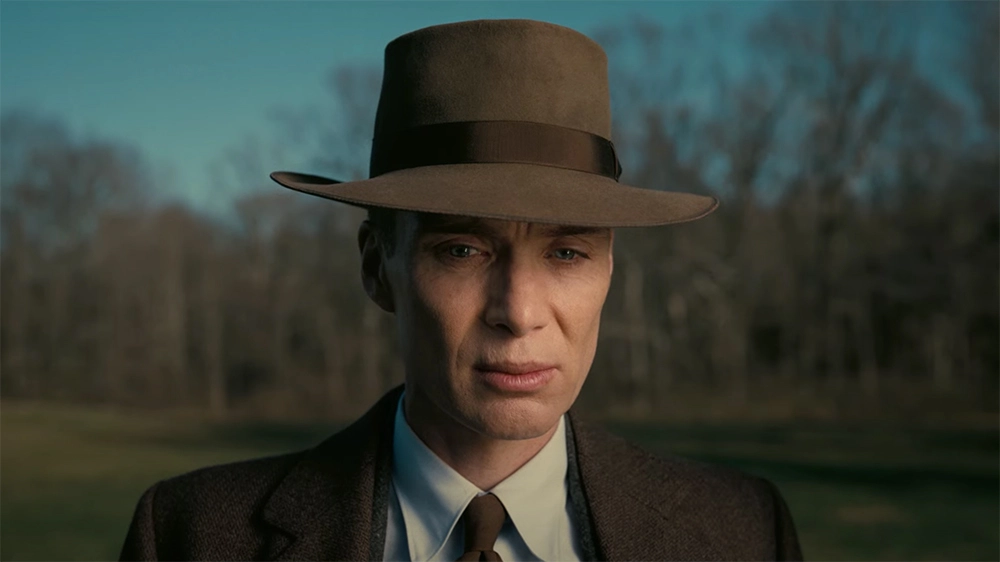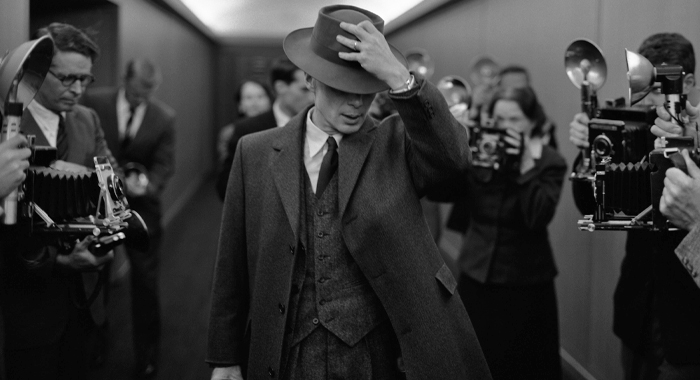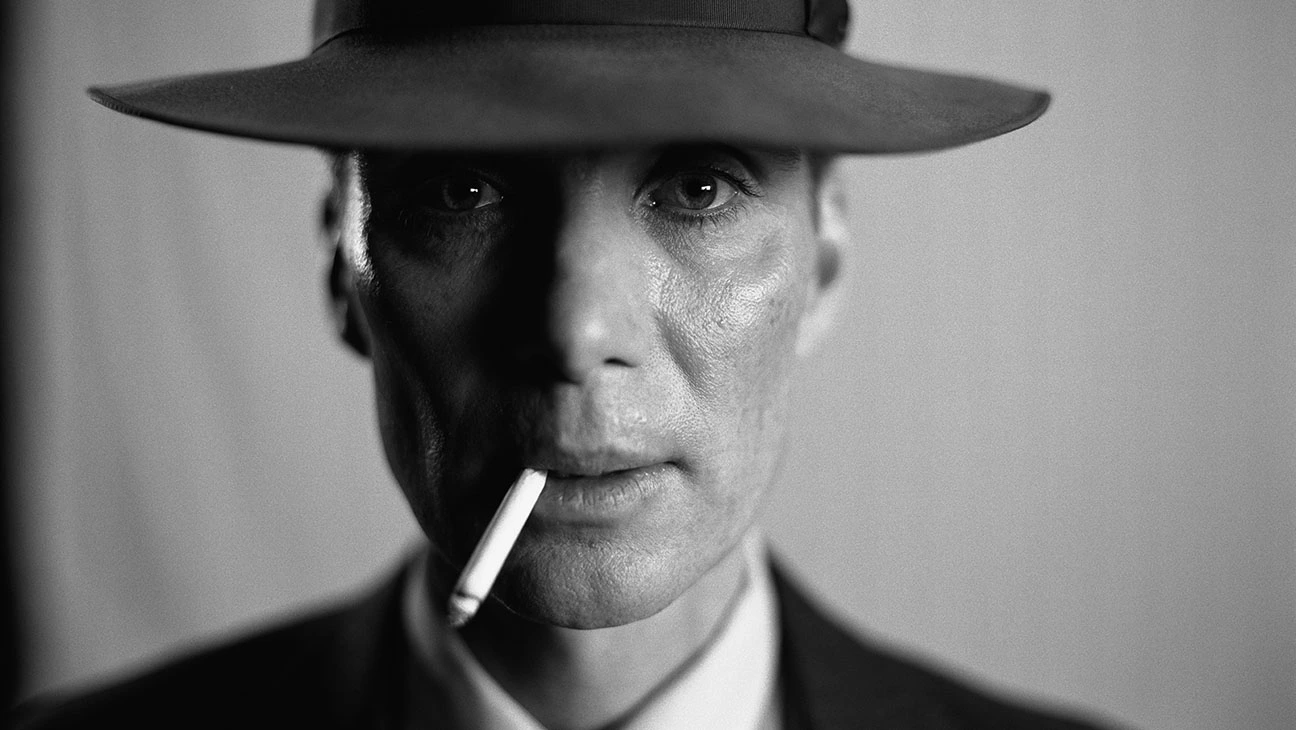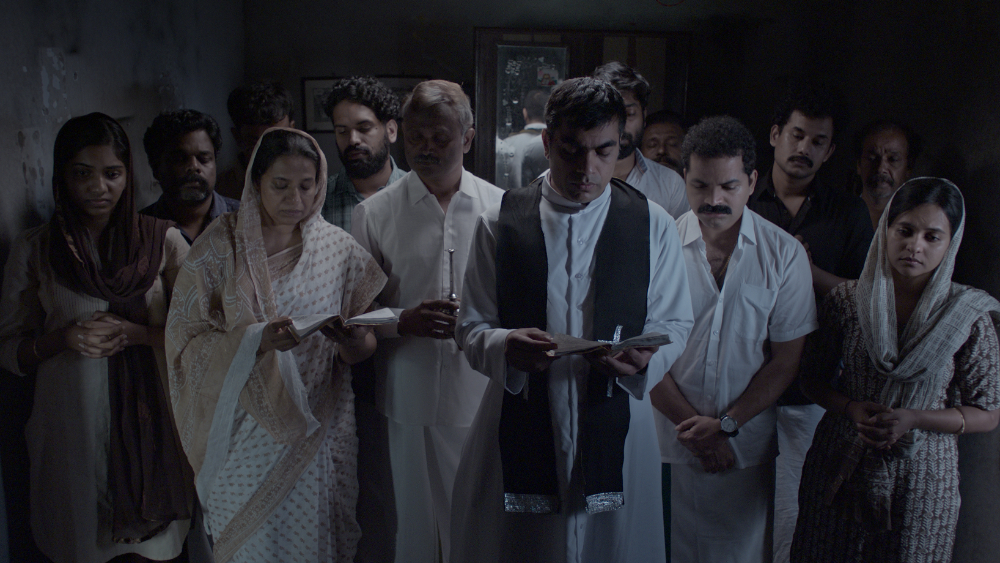There are some films where words cannot accurately describe the experience. This is a film with constant dialogues, on different themes, with different characters that keep appearing. Just like life is, with constant changes, constant relationships, and constant experiences. An astonishing and relentless film, it weaves through different points in time, filmed alternatively in color and contrasted with stunning black and white imagery. The only place to watch this film is on the biggest screen possible as it is filled with sweeping cinematography, career-defining performances, and surreal visual effects which will blow you off your seats and leave you speechless as the credits begin to roll.
Christopher Nolan tackles one of the most divisive scientific achievements in human history–the invention of the atomic bomb–through the lens of its chief creator, J. Robert Oppenheimer, and the resulting fallout coupled with the emotional ordeal this achievement had on Oppenheimer himself. Nolan has created a film using mostly practical visual effects which makes everything you see look very real and that is exactly how he intended for audiences to see it giving the sense that we are seeing everything as Oppenheimer saw them.

Perspective is used very cleverly as Nolan navigates the character study through time and space which puts a lot of other biopics to shame. The direction of every scene, the decision to cut a scene and go to the next very quickly as move from one sequence to another, slowly revealing, slowly building tension until an eventual release many times during the film. The three-hour runtime is more than justified as the story advances at a breakneck pace from start to finish. Amid the fast-paced dialogue-heavy scenes moving back and forth in time and between characters, the quieter silent moments are some of the best in this film. Your heart races as the tension build up, it comes to a sudden stop and then races again to the next scene. This film is relentless and unforgiving when it comes to showing the psychological impact the whole process of building the A-bomb and the aftermath has on Oppenheimer.
Every single emotion can be felt through the screen, and much of that can be attributed to the capability of Cillian Murphy, the undoubted star of this movie, whose piercing eyes and extreme subtlety lend to him a quiet fragility amongst total and utter conviction, unpicking a man of contradictions in a manner which reveals the depth of feeling and conflict that Oppenheimer battled throughout his life. He is not an easy character to like, and that is the point. He is a flawed genius, as they all are, a man with an ego, with compassion, with the mental strength to coordinate a titanic effort to change the world, and whose emotions can be overwhelmed in a single phone call. It is one of the most difficult characters to be shown on screen and even more difficult is the approach Nolan takes to tell his story.
My only qualms, albeit small, is the lack of screentime for the supporting cast notably Emily Blunt and Florence Pugh who through no fault of their own, are forced onto the sidelines through the sheer scope of Nolan’s narrative, but whose involvement is still vital to the emotional core of the movie. Their characters gave Oppenheimer the emotional turmoil he carried for many years which continued to haunt him as he grew older. Robert Downey Jr. takes the other big role of Lewis Strauss, a government official who recruits Oppenheimer to a government board on Atomic Energy after the war. He gives Strauss the necessary charisma, the necessary intensity to push back against Murphy’s total control of the screen. Robert Downey Jr gives a Tour de France performance that I believe is his finest to date.

Ludwig Goransson‘s score is exceptional, with motifs appearing perfectly in sync with a superb sound design, lending so much extra intensity and detail to so many sequences in this movie. The sound design is simply perfection, adding to the narrative and the character of Oppenheimer as well. Jennifer Lame‘s editing is so so brilliant, especially in the sequences where tension is high. Clean, efficient, technically masterful editing which turns scenes into hammer blows. The sound mixing is an issue with almost every Chris Nolan film. Nolan himself has mentioned several times that he feels dialogue is second to the background score. But, in a film like this where dialogues are heavy, fast-paced, and switch between characters quickly, the background score should have been controlled a little bit more. Again, this is not a huge negative as for the most part, it is fine.
Lastly, Tom Conti‘s brief appearances as the famed physicist Albert Einstein provide the perfect pivot moments of the movie, putting down a definitive stamp of almost prophetic authority on a fittingly complex, nuanced, and chillingly beautiful portrait of the man who helped change the reality of the world as we know it. The final scene of an impromptu conversation between the two leaves us stuck in our seats as we realize the gravity of Oppenheimer’s achievement and its everlasting impression even in our time.

Christopher Nolan’s love and passion for film is felt in every frame as he continues to define himself as one of the few remaining filmmakers who deeply care about their craft and provide audiences with fantastic stories and authentic jaw-dropping visuals. This is the film where he experimented and let himself loose. He was not restricted by a PG-13 rating, so this freedom and creative control pushed and challenged him to create something that will stand the test of time. His persistence to shoot everything in IMAX and use little-to-no CGI has paid off tremendously. The horror and awe ingrained into your soul by the visuals created one of the most immersive experiences I’ve had at the cinema. You can’t switch your brain off, you must be attentive throughout or you’ll lose track as the story moves fast. This is also not your typical Nolan film, it’s a lot more drama-focused with scenes mostly consisting of people talking so if you’re going in expecting a lot of explosions you’re setting yourself up for disappointment.
Oppenheimer is a classic in the sense that 50 years from now, when you see it, it will look and feel the same compared to other VFX-heavy films that will look like cartoons. Nolan’s latest, arguably his best, is an incredible piece with almost every component executed masterfully and is exactly the sort of film that cinemas needed right now.







[…] Holdovers”“Indiana Jones and the Dial of Destiny”“Killers of the Flower Moon”“Oppenheimer”“Poor Things”“Saltburn”“Society of the Snow”“Spider-Man: Across the […]